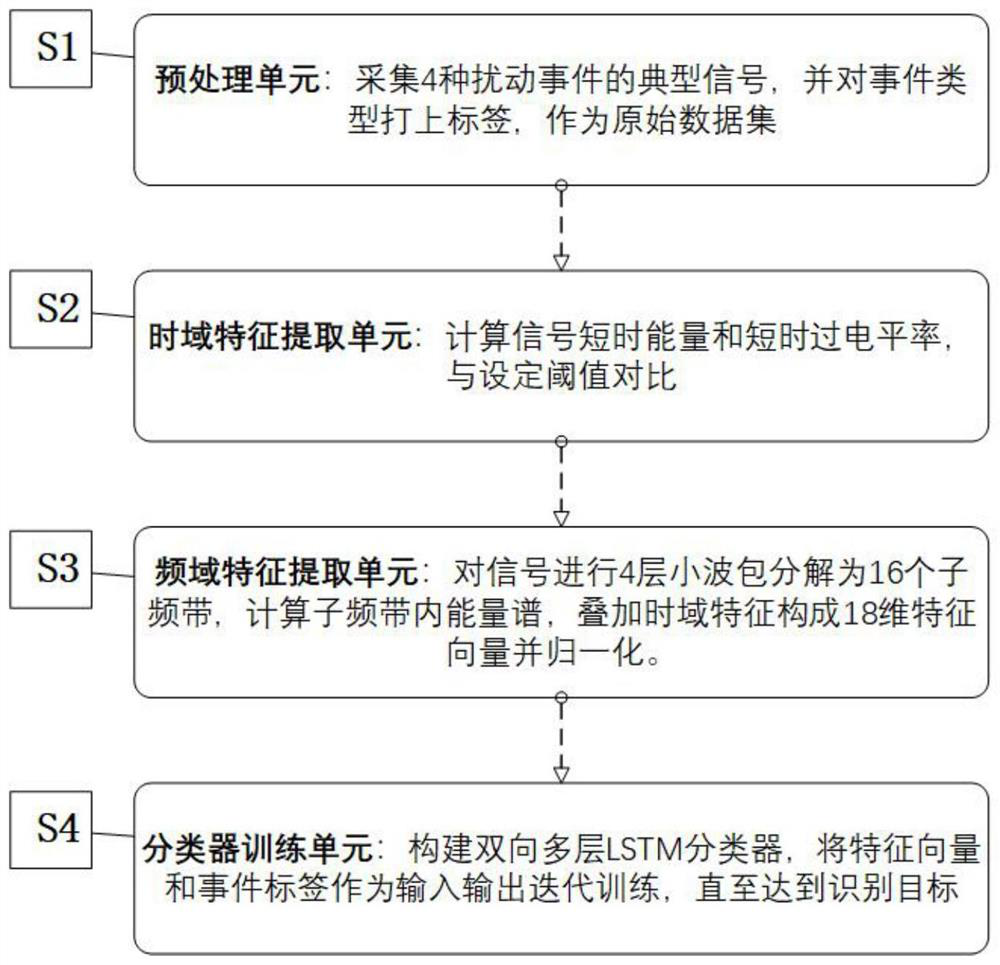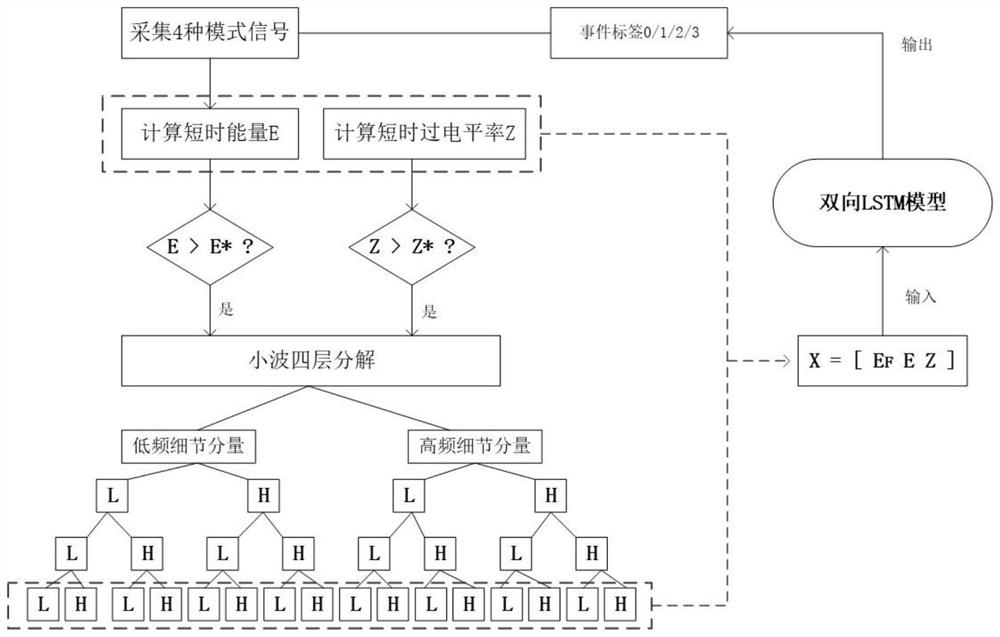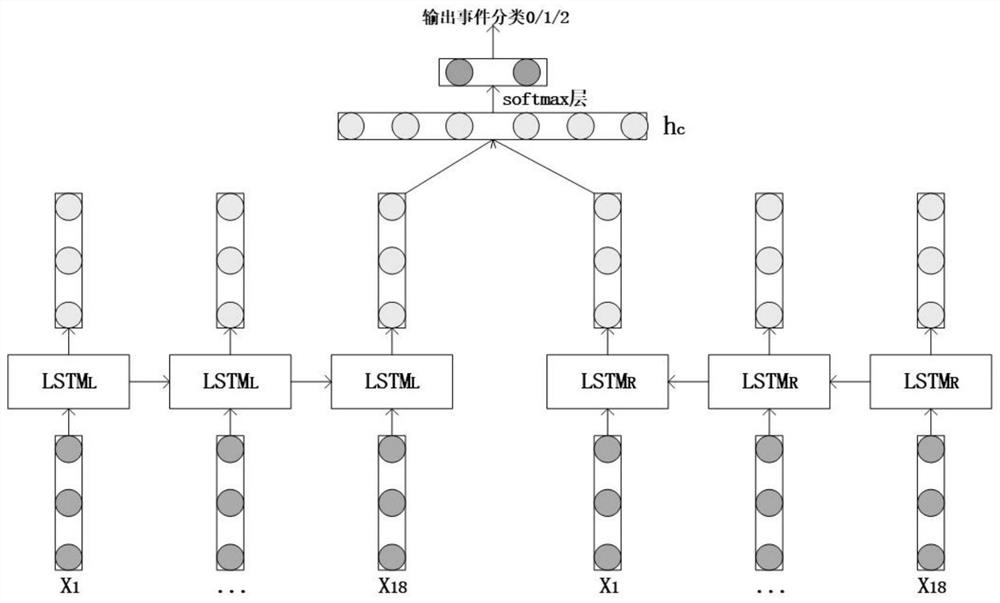Pattern Recognition Method of Fiber Optic Sensing Disturbance Signal Based on BILSTM
A perturbation signal, optical fiber sensing technology, applied to pattern recognition in signals, character and pattern recognition, and optical devices to transmit sensing components, etc., can solve the problem of inability to extract waveform transformation, low efficiency, insufficient theoretical basis problem, to achieve strong universality and portability, improve the recognition rate, and quickly identify and classify the effects
- Summary
- Abstract
- Description
- Claims
- Application Information
AI Technical Summary
Problems solved by technology
Method used
Image
Examples
Embodiment Construction
[0019] The technical solutions of the present invention will be further elaborated below in conjunction with specific implementation examples and accompanying drawings.
[0020] figure 1 It is a schematic flow chart of the composite feature optical fiber signal recognition method based on the LSTM algorithm provided by the present invention, a fiber sensing disturbance signal recognition method using time-frequency domain composite features, including four units: a preprocessing unit, a time domain feature extraction unit, Frequency domain feature extraction unit, classifier training unit.
[0021] The Distributed Optical Fiber Sensing System disturbance signal recognition method based on the BiLSTM algorithm designed by the present invention is characterized in that comprising the following steps:
[0022] S1: collect the vibration signal in the optical fiber and store the signal data, and add the type label;
[0023] These include building a distributed optical fiber sensi...
PUM
 Login to View More
Login to View More Abstract
Description
Claims
Application Information
 Login to View More
Login to View More - R&D
- Intellectual Property
- Life Sciences
- Materials
- Tech Scout
- Unparalleled Data Quality
- Higher Quality Content
- 60% Fewer Hallucinations
Browse by: Latest US Patents, China's latest patents, Technical Efficacy Thesaurus, Application Domain, Technology Topic, Popular Technical Reports.
© 2025 PatSnap. All rights reserved.Legal|Privacy policy|Modern Slavery Act Transparency Statement|Sitemap|About US| Contact US: help@patsnap.com



